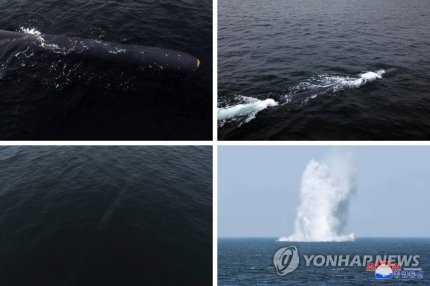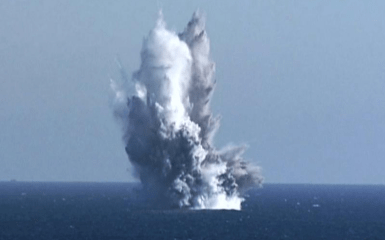North Korea has said it tested an underwater nuclear weapons system, allegedly in response to joint naval exercises between South Korea, the United States and Japan.
What is known about the underwater nuclear drone of North Korea
The test of the Haeil-5-23 system — North Korea's name for its underwater attack drones capable of carrying nuclear weapons — was conducted by a defence ministry think tank in waters off its east coast.

The navies of the three countries were conducting their three-day regular exercise until Wednesday alongside the US aircraft carrier Carl Vinson as part of efforts to improve their response to Pyongyang's new nuclear and missile threats.
North Korean state television broadcast earlier atmospheric blast tests that were monitored by US and South Korean authorities, but reports of underwater weapons have not been independently verified.
The new unmanned system, called Haeil, which means tsunami, was first tested in March 2023, and state media said it was intended to carry out stealth attacks in hostile waters and destroy Navy strike groups and major operational ports by creating a sizeable radioactive wave via underwater explosion.
The latest report of an underwater test comes days after North Korea launched a new solid-fueled intermediate-range hypersonic missile that Washington, Seoul and Tokyo condemned as a serious violation of UN Security Council resolutions.
What is known about nuclear weapons in North Korea
Previously, North Korea passed a law that allows the use of nuclear weapon "in case of a threat". It is noted that North Korea will use nuclear weapons in the event of an imminent attack on its leadership or to win a war.
Nuclear weapons can also be used in a "situation causing a catastrophic crisis" in the security sphere of the North Koreans.
In September 2023, North Korea's national assembly passed a constitutional amendment requiring the country to have nuclear weapons.
In late November 2023, South Korea's Ministry of Defense reported that North Korea had begun re-establishing security posts and deploying heavy firearms along the border with South Korea after effectively cancelling the 2018 inter-Korean de-escalation agreement.



